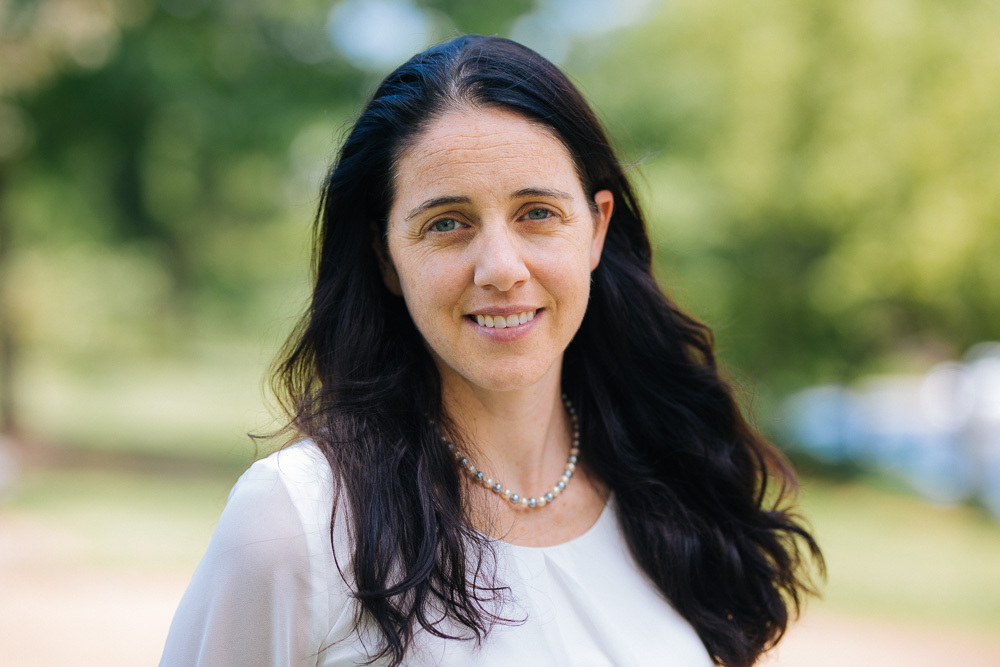The newly appointed director of the Master of Arts in Education program at Eastern Mennonite University says some of the key insights that inform her philosophy of classroom teaching date from her earliest experiences responding to medical emergencies.
Meg Sander, a product of Harrisonburg’s public schools who started answering calls with the city’s all-volunteer rescue squad when she was still a teenager, says that, through those experiences and similar ones, she came to realize that “events that are critical in the moment can have long-lasting impacts.”
As director of the MA in Education program, Sander will help teachers earn master’s degrees – in most cases as they continue to work full-time in the classroom. She is responsible for about 75 students on EMU’s Harrisonburg campus and nearly 100 more at its site in Lancaster, Pennsylvania. She will teach three classes this year.
A passion for teacher preparation
Each day, Sander says, students arrive at school fresh from life-events that in some cases are positive, and in others quite traumatic. On any given day, she says, a teacher likely won’t know with any certainty what sorts of experiences underlie a child’s readiness to learn.
Sander compares the challenges confronting the classroom teacher with those an emergency medical technician faces. A first responder must always be ready, she notes, to provide whatever it is that a person calling 911 may need.
“It’s the same for the teacher,” Sander says. “No matter what needs a child brings to the classroom, it’s a teacher’s obligation to be prepared to meet those needs before the child walks through the door.”
Sander’s own classroom-teaching experience came working with special education students in Virginia.
“Serving those students is the reason teacher preparation is so important to me,” she says. “High quality preparation is clearly of benefit to the teaching professionals themselves, and through them we serve the children.”
Legal training a unique qualification
Sander’s doctorate in education with a concentration in special education and disability leadership was conferred in 2008 by Virginia Commonwealth University. She is also a cum laude graduate of the University of Richmond’s School of Law, where she received the Orrell-Brown Award for Clinical Excellence from the school’s Children’s Disability Law Clinic.
From 2008 to 2015, Sander was an associate at several Richmond law firms, with a practice focused on education law. During this same period, she was an adjunct faculty member at both Virginia Commonwealth University and the University of Richmond.
Dr. Sue Cockley, dean of graduate and professional programs, cites Sander’s experience as a lawyer as an aspect of her background that set her apart from other candidates for the job.
“It shows she is an agent for change, and is effective in important settings outside of the classroom,” Cockley says.
Cockley adds that Sander’s 24-year involvement with the Harrisonburg Rescue Squad “indicates how much she understands and values the commitment to a team,” also noting that Sander’s rescue squad experiences have “sensitized her to the realities of how many students live.”
Additional growth projected for restorative justice specialization
Sander assumed her new duties on July 1, succeeding Sarah Armstrong, who died unexpectedly in August 2016. Armstrong had emphasized the role of restorative justice in the MA in Education program’s overall offering, and was instrumental in the launch of a master’s-level program in the discipline.
Sander says that, like her predecessor, she regards restorative justice as an important component of the MA in Education curriculum, and is working to develop an additional course on the topic, which she herself may teach.
Dr. Kathy Evans, associate professor of special education, says she is particularly hopeful that Sander’s background working with special-needs students will promote a greater understanding within teacher education of the intersections between restorative justice and special education.
“She’s enthusiastic about supporting new initiatives and seeking creative ways to promote EMU programs with area schools and districts,” Evans says. “I look forward to working with Meg as we continue not only to build the restorative justice in education program, but also to develop other creative ways of connecting with local educators.”
Sander herself says that, in all aspects of her life and work, she seeks to be of service to others.
That’s true, she says, when she’s in the back of an ambulance helping a patient, just as it was true when she stood before a classroom of special education students. She now carries that service ethic into her new job leading the MA in Education program at EMU.
Sander resides in Harrisonburg with her husband, a flight paramedic, and their five-year-old son.

This is just marvelous. Working as a first responder heavily influenced my work as a minister. In fact, they really went hand in hand. Getting up in the middle of the night to be with a parishioner at the ER was no different than driving the fire engine to a house full of terrified people and pets.